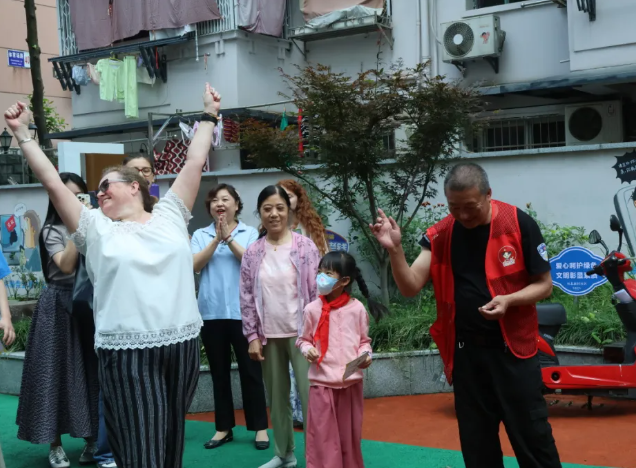Dragon Boat Festival
Do you think the Dragon Boat Festival is just about dragon boat racing? It’s far more than that. It's also about understanding Chinese history and legends, engaging in traditional games, enjoying typical foods, and being part of a community. While dragon boat races are a highlight, this festival holds deeper significance for communities not only in Hangzhou but also across China and among Chinese communities worldwide.
On June 6, I had the opportunity to attend an event in Hangzhou’s Huanbei Xincun Community to celebrate the Dragon Boat Festival and experience the amazing atmosphere of this festivity. Thanks to this event, I had the chance to meet with locals, learn about traditional games, legends, and customs.
The festival's origins trace back to ancient China’s Warring States period, with one of the most famous tales revolving around the poet Qu Yuan, who committed suicide in the Miluo River to protest against government corruption. The villagers tried in vain to save him by rowing in their boats and throwing rice into the river. An intriguing aspect of the legend is that it presents two versions: some say people threw rice into the river to prevent fish from consuming the poet's body, while others claim they threw zongzi to feed him instead of the fish, explaining why zongzi are wrapped in leaves.
Zongzi, a traditional festival food, offers a variety of fillings, including sweet options from the north such as red bean paste, and savory choices from the south, such as salted egg yolk or pork, reflecting diverse local culinary traditions.
Sachets also play a significant role, believed to ward off evil spirits and bring good luck. These fragrant sachets serve both as protective talismans, and beautiful decorations.
The Dragon Boat Festival showcases a range of customs, one being the "Shooting of the Five Poisons”. This practice stems from the belief that May is a month fraught with poison. Participants symbolically shoot representations of scorpions, snakes, centipedes, geckos, and toads to ward off evil spirits and ensure well-being.
At Libai’s Wulin Academy Restaurant in Huanbei Xincun Community, we learned that another tradition of the festival is consuming the "five yellows" including eel, yellow croaker, cucumber, salted egg yolk, and yellow rice wine. Beyond their symbolic detoxifying properties, these foods offer nutritional benefits, enhancing immunity and vitality.
When dinning, the charm of Chinese culture was made more tangible as we had the honor of listening ballad singer Chen Baichuan’s interpretation of poet Libai’s two popular poems: Thoughts on a Tranquil Night and Seeing Meng Haoran off at Yellow Crane Tower by singing and playing guitar, with the music ingeniously composed by Chen.
As we celebrate the unfolding of the Dragon Boat Festival, we invite you to join us at our future Hangzhoufeel events to explore Chinese culture further. Whether you're interested in arts, cuisine, or local customs, there's something for everyone to enjoy. Don't miss out!

